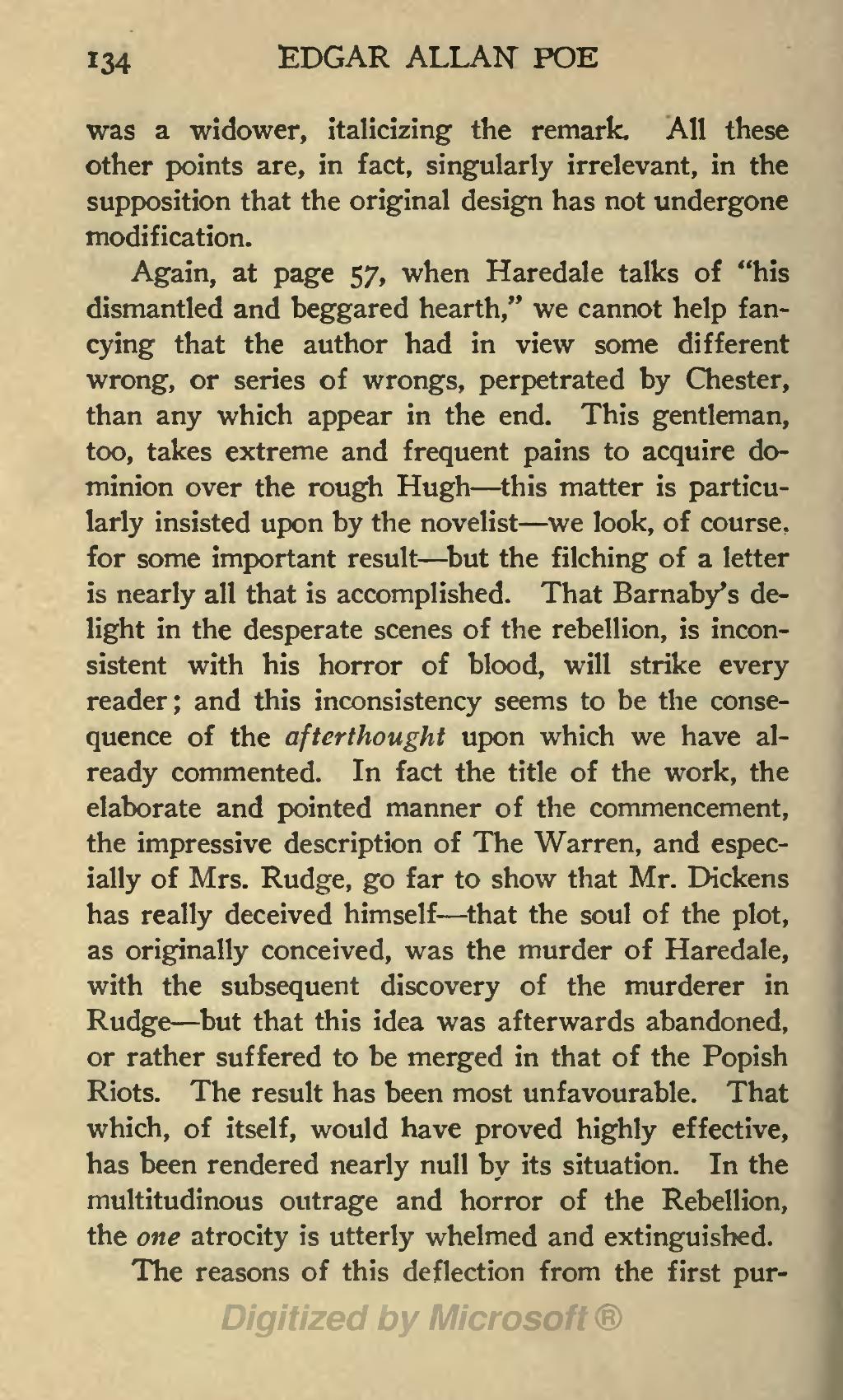was a widower, italicizing the remark. All these other points are, in fact, singularly irrelevant, in the supposition that the original design has not undergone modification.
Again, at page 57, when Haredale talks of "his dismantled and beggared hearth," we cannot help fancying that the author had in view some different wrong, or series of wrongs, perpetrated by Chester, than any which appear in the end. This gentleman, too, takes extreme and frequent pains to acquire do- minion over the rough Hugh—this matter is particularly insisted upon by the novelist—we look, of course, for some important result—but the filching of a letter is nearly all that is accomplished. That Barnaby's delight in the desperate scenes of the rebellion, is inconsistent with his horror of blood, will strike every reader; and this inconsistency seems to be the consequence of the afterthought upon which we have already commented. In fact the title of the work, the elaborate and pointed manner of the commencement, the impressive description of The Warren, and especially of Mrs. Rudge, go far to show that Mr. Dickens has really deceived himself—that the soul of the plot, as originally conceived, was the murder of Haredale, with the subsequent discovery of the murderer in Rudge—but that this idea was afterwards abandoned, or rather suffered to be merged in that of the Popish Riots. The result has been most unfavourable. That which, of itself, would have proved highly effective, has been rendered nearly null by its situation. In the multitudinous outrage and horror of the Rebellion, the one atrocity is utterly whelmed and extinguished.
The reasons of this deflection from the first pur-
